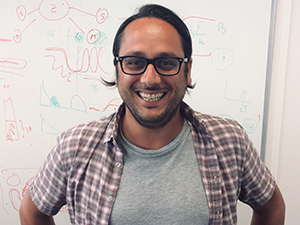Scientists have developed a new test that can decode when someone’s cancer first started growing and how fast it is growing, potentially allowing doctors to accurately predict when a patient will need treatment.
Findings, published in the journal Nature, revealed how scientists from The Institute of Cancer Research, London and the Hospital Clinic-IDIBAPS Biomedical Research Institute of Barcelona, Spain, have developed a novel technique to track the evolutionary history of a tumour from a single sample.
The new technique, which involves analysing subtle changes in tumour DNA called methylation, has been tested successfully on different types of blood cancer – but it is hoped that it should work across all types of cancer, offering the prospect of better prediction of disease progression, and ongoing monitoring without the need for repeated invasive biopsies.
Understanding how cancer evolves
Cancer grows and spreads by evolving, where the cells mutate and change. Understanding how this process works can help predict how a patient’s disease might progress for cancer types when treatment isn’t given straightaway, as well as predicting how an individual might respond to treatment.
Pre-cancerous conditions or early-stage cancers that sometimes do not require immediate treatment but do need regular monitoring include some blood cancers, low-grade prostate cancers, inflammatory bowel disease, Barrett’s Oesophagus and some low-grade gliomas.
To test the theory, the Institute of Cancer Research (ICR) team looked at methylation marks – chemical modifications – on the DNA of cancer cells.
The team found that a set of methylation marks act like a ‘barcode’ for each cancer cell, helping them to trace the ‘family tree’ of a tumour. They found that how a cancer had evolved in the past, determined how it would behave in the future.
Reconstructing a tumour's family history
They developed a mathematical model called EVOFLUx to read the barcodes and reconstruct the tumour’s evolutionary history from the tumour sample.
The team used EVOFLUx to analyse DNA methylation data from over 2,000 patients with various types of blood cancers, including both aggressive and slow-growing diseases which occur in both infants and older adults, and samples from different stages of disease and treatment.
Their findings showed that each patient’s cancer has a unique evolutionary history. Some cancers had been growing in the body for more than a decade before they were first detected, whereas other cancers grew very rapidly in just a few months.
Predicting cancer treatment needs
In patients with chronic lymphocytic leukaemia (CLL), a type of cancer that usually develops very slowly and does not always need to be treated straight away, EVOFLUx accurately predicted that those with faster-growing cancer cells would need treatment sooner and had a shorter overall survival time.
Patients with faster-growing CLL had nearly four times the risk of needing treatment sooner and had about 1.5 times the risk of their cancer being fatal.
The researchers noted that acute lymphoblastic leukaemia (ALL), which is a fast-growing cancer in young children, tends to be ‘evolutionarily younger’ compared to other blood cancers. This means the cancer cells had undergone fewer divisions and accumulated fewer changes over time. The rapid growth helps explain why ALL often needs urgent treatment.
A cost effective and scalable testing method
However, the study, which received funding from Cancer Research UK, the Spanish Association Against Cancer, the United States National Institutes of Health, The La Caixa Foundation and the European Research Council, also observed very variable growth rates of ALL, which may help clinicians predict which children will benefit most from treatment.
The new method uses low-cost DNA methylation testing, which is widely available, making it cost effective and suitable for use on a large scale. The scientists say the next steps will be to demonstrate, in clinical trials, how well the predictions work.
Professor Trevor Graham, Professor of Genomics and Evolution and Director of the Centre for Evolution and Cancer at The Institute of Cancer Research, London, said:
“Cancers evolve, which means they change over time. These changes make a cancer hard to treat. Here we discovered that the evolutionary path that a cancer is on is set when the cancer first starts growing. Our new test learns that path and predicts when treatment will be needed. It’s potentially a major step toward truly personalised cancer care.”
Professor Iñaki Martin-Subero, ICREA Research Professor at the IDIBAPS Biomedical Research Institute, Barcelona, Spain, said:
"Decoding the trajectory of cancer from its origin to diagnosis enables us to estimate its future progression. In the case of chronic lymphocytic leukaemia, we were able to accurately predict when the disease would require treatment. This study opens new avenues for both basic research and personalised medicine, and we hope it can be extended to other types of cancer as well.”
'Understanding the biology of cancer is key to overcoming it'
Professor Kristian Helin, Chief Executive of The Institute of Cancer Research, London, said:
“Understanding the biology of cancer—how it evolves, adapts, and resists treatment—is key to overcoming it. This research provides insights into predicting how a patient’s cancer will progress and monitor how it changes over time without the need for repeated invasive biopsies. It will be exciting to consider how these findings could help shape more innovative and personalised treatment of cancer patients.”
Dr Dani Edmunds, Research Information Manager at Cancer Research UK, said:
"Thanks to advances in science and technology, we’re now able to use detailed information about a person's cancer to personalise their treatment. This research shows that by reading cancers’ ‘barcodes’, doctors could make more informed decisions about how and when to treat both children and adults with cancer. While clinical trials are needed before these tests are available in the clinic, they could help to make cancer treatment not just more effective but kinder, so more people can live longer, better lives free from the fear of cancer.”
.tmb-propic-md.jpg?Culture=en&sfvrsn=c25d2b2f_9)
 .
.
